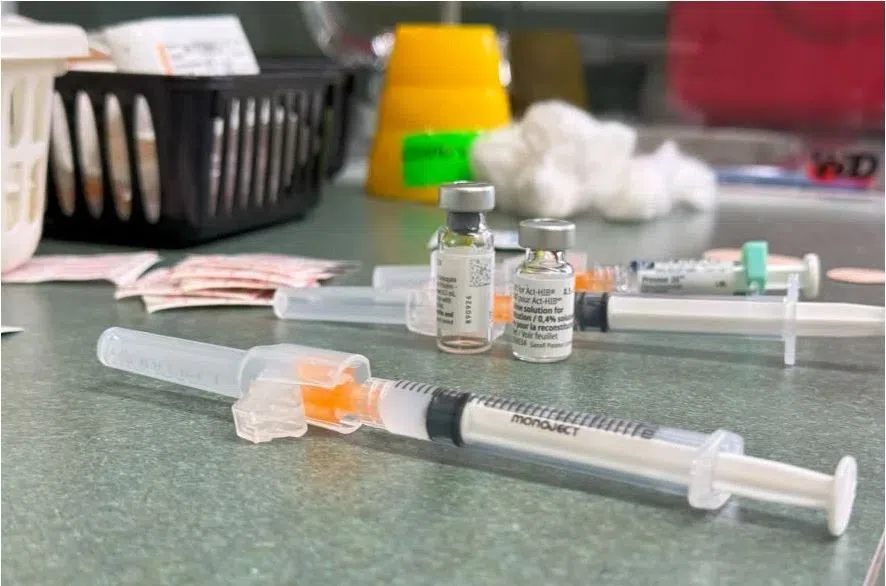There’s another infection to keep your eye on in Saskatchewan: whooping cough.
According to the Ministry of Health, the number of confirmed cases is higher than last year.
As of Sept. 30, 2024, 60 pertussis cases (average of seven cases per month) have been reported in the province in 2024.
In 2023, there were 59 reported cases of pertussis (an average of five cases per month).
Dr. Joseph Blondeau, head of clinical microbiology at Royal University Hospital and the provincial lead for clinical microbiology with the Saskatchewan Health Authority, said whooping cough is completely preventable through vaccinations.
“Whenever you have an opportunity to prevent something that doesn’t need to happen, then I always think that’s in the patient’s best interest. In order to prevent disease, to make sure that their vaccines are up to date,” Blondeau said.
READ MORE:
- ‘Prevention is better than cure’ says Dr. Shahab on Covid-19
- Sask. pharmacies seeing a shortage of COVID-19 vaccines
- COVID-19 vaccines phasing into seasonal vaccine
He said it’s important to have a discussion with your doctor about the vaccine.
For people who are unsure of their vaccination records, Blondeau recommends getting a dose.
“If you have good records, it may be easy, but in other instances there may not be good records,” he said. “In those particular situations, I think it’s really important to consider being vaccinated if you’re unsure of your previous vaccine status.”
Blondeau said the infection is especially worrisome for children.
“Whooping Cough was originally named because of the the difficulty that children had in getting a breath in when they were coughing as a result of being infected with this bacteria,” he said. “Trying to force the air in and out gave this sort of distinctive whoop (sound).”
He said it’s important to get a proper diagnosis to receive adequate treatment.
“We have good antibiotics for treating patients that have confirmed pertussis (whooping cough) infections,” Blondeau said.
The infection can start out like a common cold with symptoms like sneezing, runny nose, fever and a cough.
It can progress into a much stronger cough, resulting in coughing spells and the whooping sound, especially in young children. This persistent cough can last for one to two months.
The cough can become so violent, an infected person may gag or vomit from the force. It can also become difficult to breathe.
For more information about whooping cough, visit click here.
Blondeau recommends visiting your doctor when symptoms arise. Your doctor can collect a specimen from your respiratory tract for testing.
“We have some sophisticated testing that allows us to detect this organism, even if it’s present in low amounts,” he said.
After the specimen has been tested, its up to your doctor to determine the best treatment plan for you.
Blondeau emphasizes the importance of preventative vaccinations.
In a statement from the Ministry of Health, it said, ‘All children should receive routine free vaccinations, which includes protection against pertussis, at two, four and six months of age, followed by additional doses at 18 months and four years. Women who are pregnant are also encouraged to get a Tdap booster shot.’
For more information about immunization schedules and recommended immunizations, click here.











